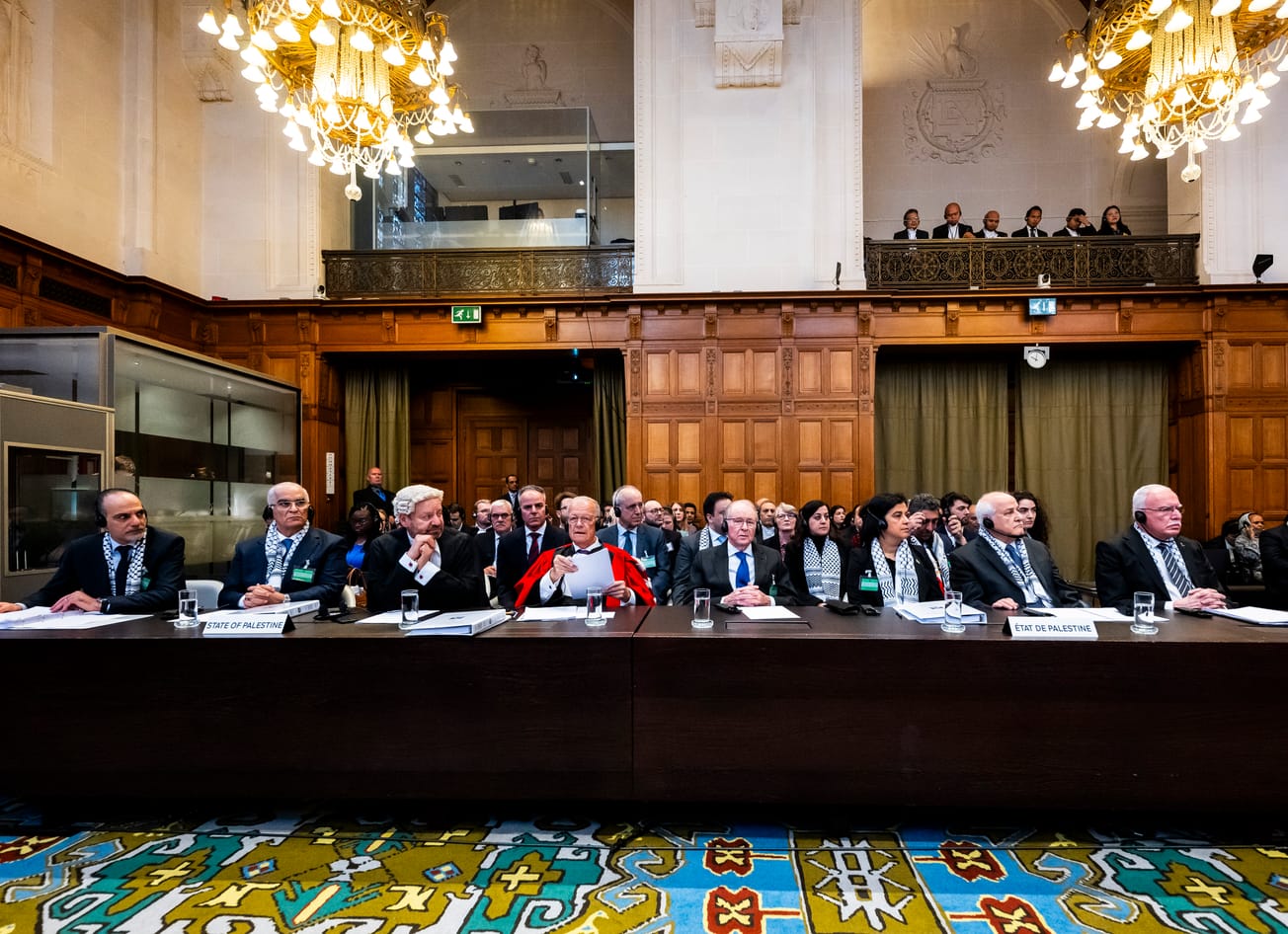More than 50 speakers addressed oral hearings held by the World Court over the period of Feb. 19-26 on the “legal consequences” of the “policies and practices” of the State of Israel in its occupation of the Palestinian territories.
“No state reserves to itself the right to systematically violate the rights of a people to self-determination … except Israel,” said Assad Shoman, Ambassador of Belize. “No state seeks to justify the indefinite occupation of another’s territory … except Israel. No state commits annexation and apartheid with impunity, except—it seems—Israel … Israel must be made to behave like all civilized nations. Stop violating international law and UN resolutions! Respect the right of the Palestinian people to self-determination. Palestine must be free!”
“Palestinians are not expendable people,” said Bangladesh representative Riaz Hamidullah, reports David Kattengurg for Mondoweiss.
Indonesian Foreign Minister Retno Marsudi was so intent on speaking directly to the court, that she left the G20 foreign ministers’ meeting in Brazil to attend. Israel’s “unlawful occupation and its atrocities must stop and should not be normalized or recognized,” she insisted.
“We as South Africans sense, see, hear and feel to our core the inhumane, discriminatory policies and practices of the Israeli regime as an even more extreme form of the apartheid that was institutionalized against black people in my country,” South African ambassador to the Netherlands Vusimuzi Madonsela told the court.
The African Union described the situation as “asymmetrical … in which an oppressed people is confronted with an occupying power.”
Algerian law professor Ahmed Laraba referred to Cato the Elder’s obsession with Carthage, as expressed in the phrase “Carthago delenda est,” saying that today, Israel’s policy appears to be “Gaza destructum est.”
“Neither the duration of the occupation nor the scale and extent of [Israel’s] settlement activity is, in Ireland’s view, justified or permitted by the law regulating the use of force in self-defense,” Irish Foreign Minister Rossa Fanning told the court. “[If] the security of one people can only be achieved by the occupation over so many decades of the territory of another people, one has to wonder whether there can be any military solution to the problem that it purports to address.”






